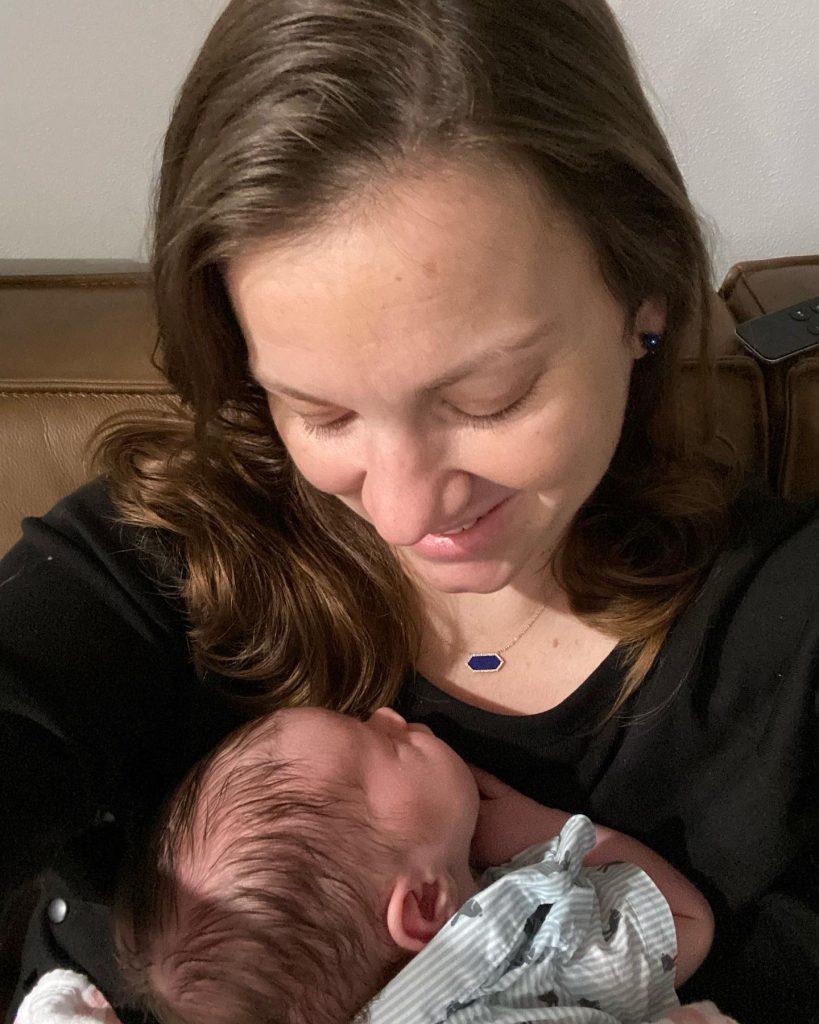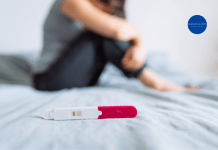A note from the author:
In writing this article series, I had a lot of concerns. For myself. For my little family. For the way I would be seen. So I talked to my husband, probably one of the most even-keeled people I’ve ever met. He can look at a situation, even this one, from all angles and provide a point of view that’s just so logical it’s scary. In our discussion, I asked if he was okay if I wrote about my experience, our experience. He, of course, said yes. To my reservations about writing about living with anxiety as a physician, he so brilliantly reminded me that my anxiety drives me to be meticulous in patient care.
Indeed, my favorite online “one-star” review from a patient was: “Dr. Brooks is so thorough it’s annoying.” But more than that, we talked about normalizing hard and taboo things. So if one woman reads this series and feels seen, it will have done its job. Because when you hear someone else struggling with what you are struggling with, you feel less alone. So I hope in the coming weeks, something resonates.
 You know what, postpartum mama? Intrusive thoughts are common. I’ll say it again. In a postpartum mom, INTRUSIVE THOUGHTS ARE COMMON. You aren’t alone, love. Up to 90% of new moms get them. NINETY PERCENT.
You know what, postpartum mama? Intrusive thoughts are common. I’ll say it again. In a postpartum mom, INTRUSIVE THOUGHTS ARE COMMON. You aren’t alone, love. Up to 90% of new moms get them. NINETY PERCENT.
I recently read the book “Good Moms Have Scary Thoughts” by Karen Kleiman after my second baby was born. (I recommend it to everyone. It’s an incredibly short read and full of comics/graphics, so it’s not super dry.)
I am a Family Physician. I see babies, pregnant women, moms, grandmas, everybody. Though I’ve only delivered (approximately) 75 babies in my lifetime, I’ve cared for way, way more pregnant and postpartum moms. I know all the markers for postpartum depression, and I have treated multiple patients for the same. But as a high-functioning anxious person, I was not ready for postpartum anxiety.
The day we took our firstborn home from the hospital was in March 2020. I delivered at the same hospital where I worked as a Family Medicine resident. At 2:45 PM, as we were preparing our bags to leave, the nurse ran in and said, “You guys better leave now. They’re changing the visitor policy at 3 o’clock. There’s some virus thing; everyone’s going to stay home for two weeks. I guess that’ll be good for you since you shouldn’t be around anyone with the baby anyway.”
My husband piled all our things onto a cart, wheeled it to the elevator, and took it to the car. By the time everything was loaded, he actually got a lot of flack for trying to come back upstairs. He had to convince the security guard that his wife, a doctor at the same hospital, had just had a baby, and he was only going upstairs to help her get to the car.
What entailed was a rough recovery from the physical complications of the delivery but really a very socially isolating six weeks.
There was so much we didn’t know about COVID then. There was more that I didn’t know about being a mom. Breastfeeding. Weird baby rashes. Baby poop (color, consistency, frequency). The noises.
I knew what to look for when it came to postpartum baby blues (common in the first two weeks) and depression (worse and more common after the first two weeks). I was lonely when my husband returned to work, and I was moody, but I wasn’t depressed. I’d seen depression and treated it; believe me, it has many forms. (Postpartum depression is a whole other animal and deserves its own post. So I won’t be covering it here, but maybe later.)
But something wasn’t right. I told myself it was all hormones. That I was not going to feel like myself for a while, and that would have to be okay. That my body had been through so much that recovery would be an inevitably long, uphill battle.
I remember waking up in cold sweats a lot. Most of that was truly hormones. But I was also waking up from nightmares: That I had dropped my baby or lost my baby. I would go over to the bassinet and watch her sleep, holding my hand above her face to feel for air on exhalation to make sure she was breathing.
This can’t be normal, I thought.
Normal may not be the right word. Common is what it was. And nobody talks about it. I believe personally that mostly it’s because we don’t know what to look for, and we have a hard time pinning down signs and symptoms that don’t fit into a well-established definition. For example, if you’re crying and don’t want to hold your baby, then check for postpartum depression.
But I wasn’t crying. And I wanted to hold her. I was just scared while doing it. Nervous. Ruminating over negative thoughts of how other people must have this figured out, but I hadn’t. How I was going to drop her. How she wasn’t getting enough milk. How I would somehow be the one to get her sick, and she’d have to be hospitalized. Seeing flashes of her getting hurt and it being my fault.
I wanted to sleep when she slept, but I was nervous about no one else watching her sleep. I wanted to go out and be with friends, but all my friends worked in the hospital, and I didn’t want her to get sick. I wanted so much for her, but I always had this sinking feeling that the worst would happen.
And that was how life was for a while. It was…unsettling, to say the least.
I did make it through, and the baby was fine. But I didn’t realize until much later that I had postpartum anxiety. And that things could have gone downhill quickly.
There’s no such thing as a do-over, but I do want to look at what could have been different had I recognized what I was feeling sooner.
So for Maternal Mental Health Month, I’d like to focus on helping women identify the symptoms and finding help in the next steps.
 This is part one of our “Healthy Moms Take Care of Themselves” series. Next week I will be interviewing Margeaux Gibson, a Licensed Mental Health Counselor who specializes in Maternal Wellness, to talk about these issues.
This is part one of our “Healthy Moms Take Care of Themselves” series. Next week I will be interviewing Margeaux Gibson, a Licensed Mental Health Counselor who specializes in Maternal Wellness, to talk about these issues.
Please stay tuned!
{Please note that though I’m a doctor, I’m not your doctor! The views expressed here are for informational/educational purposes only and do not take the place of consultation from your personal medical specialist. This blog is not meant to diagnose or treat, only to inform. If you are having any immediate thoughts of hurting yourself or anyone else or are in any way concerned about a medical emergency, please call 911. Reach out to your PCP, OBGYN, or other medical specialist with concerns.}
Sources:














